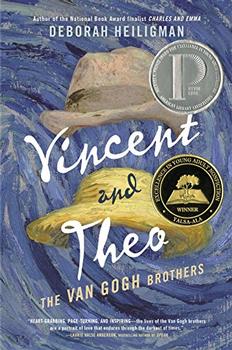Summary | Excerpt | Reading Guide | Reviews | Beyond the book | Read-Alikes | Genres & Themes | Author Bio

A Memoir
by Mira BartokIn her fascinating memoir, The Memory Palace, Mira Bartók recounts her experiences growing up with her mother, Norma Kurap Herr, who suffered from schizophrenia for over sixty years.
Her stories, both heartbreaking and well-written, are almost unbelievable and at times read like fiction. From the moment when, as a five-year-old, Mira sees her mother alone in the kitchen, walking in circles wielding a knife, to being interrogated about her non-existent sexual practices as a child (Is that sperm on your leg? Are you having sex for money? Why won't you tell me the truth? I am your mother! I have a right to know!), Bartók describes her life with honesty, and with noticeable detachment.
 She tells the story in the first person present, as if guiding the reader through a frozen dream, trying to piece together what is real and what is not. She describes what she remembers with a vivid and poetic style, and her narrative is calm and removed. At first, that detachment frustrated me as a reader; I felt like I wanted to know more about exactly what was happening with her mother. I wanted to know why she acted the way she did. I wanted to know where she went when she was homeless, whether or not the sexual abuse she suffered as a young woman affected her mental state, and I wanted someone to tell me what information was reliable and what was delusional. And then I realized that these are all questions Bartók never gets the answers to either. She obsesses about them throughout her entire life, even when she changes her name and moves to Italy, Israel and the Arctic Circle to escape her mother. She never stops worrying about her.
She tells the story in the first person present, as if guiding the reader through a frozen dream, trying to piece together what is real and what is not. She describes what she remembers with a vivid and poetic style, and her narrative is calm and removed. At first, that detachment frustrated me as a reader; I felt like I wanted to know more about exactly what was happening with her mother. I wanted to know why she acted the way she did. I wanted to know where she went when she was homeless, whether or not the sexual abuse she suffered as a young woman affected her mental state, and I wanted someone to tell me what information was reliable and what was delusional. And then I realized that these are all questions Bartók never gets the answers to either. She obsesses about them throughout her entire life, even when she changes her name and moves to Italy, Israel and the Arctic Circle to escape her mother. She never stops worrying about her.
 Her descriptions are given great care and are told with poetry. She portrays the respite of her grandparents' backyard - the plum and pear trees, the birds and plants she loves so much - with the same detail as she describes the suffocating cigarette smoke, her grandfather's alcoholism and abuse, and the constant drone of fear in her life. She relies on art, music and the calming qualities of naming things - taxonomy, lists, geological facts - as a way to soothe herself, and it is fascinating that her mother does the exact same things.
Her descriptions are given great care and are told with poetry. She portrays the respite of her grandparents' backyard - the plum and pear trees, the birds and plants she loves so much - with the same detail as she describes the suffocating cigarette smoke, her grandfather's alcoholism and abuse, and the constant drone of fear in her life. She relies on art, music and the calming qualities of naming things - taxonomy, lists, geological facts - as a way to soothe herself, and it is fascinating that her mother does the exact same things.
Above all, what makes this book truly outstanding is Bartók's meditation on the role of memory and its relationship to human connection. Her art - and the bond she forges with her mother through her art - becomes even more important after Bartók suffers a severe brain injury in a car accident in 1999. She loses a good portion of her memory and concentration, she gets lost easily, and she desires to reconnect with her mother. She writes:
"Going to the grocery store is now a harrowing experience. I can't bear the music they play and all those bright lights... I find myself standing in an aisle, crying and confused. Then I get lost walking the two blocks home. And those sounds on the street - so many people talking, dogs barking, and people honking horns, children shouting - the world around me is unbearable. All those voices coming at me wherever I go. This must be what my mother feels, this relentless assault to her brain."
After finally reuniting, while sifting through her mother's storage unit Bartók struggles to piece together her own memories and her past, reconciling it with her present. Her writing carries the beautiful uncertainty, loneliness and hope of a child, as well as the sadness and love of an adult who has had to make difficult decisions. What an interesting book. I highly recommend it!
Images are reproduced from the opening pages of The Memory Palace.
![]() This review was originally published in The BookBrowse Review in February 2011, and has been updated for the
September 2011 edition.
Click here to go to this issue.
This review was originally published in The BookBrowse Review in February 2011, and has been updated for the
September 2011 edition.
Click here to go to this issue.

If you liked The Memory Palace, try these:

by Tara Westover
Published 2022
Winner of the 2018 BookBrowse Nonfiction Award
An unforgettable memoir about a young girl who, kept out of school, leaves her survivalist family and goes on to earn a PhD from Cambridge University.

by Deborah Heiligman
Published 2019
From the author of National Book Award finalist Charles and Emma comes an incredible story of brotherly love.
Your guide toexceptional books
BookBrowse seeks out and recommends the best in contemporary fiction and nonfiction—books that not only engage and entertain but also deepen our understanding of ourselves and the world around us.